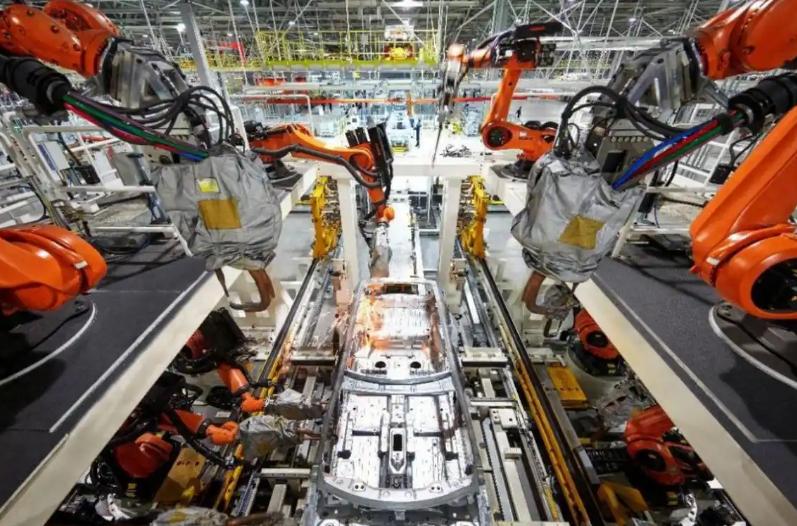
According to the Modi government's plan, India's economy aims to reach $5 trillion by 2030 and become a developed nation by 2047. To this end, India has increased its investment in industrialization in the past decade and introduced many policies and reforms in an attempt to promote the rapid development of the manufacturing industry. However, India has encountered many obstacles on this path of industrialization. The first is a shortage of skilled workers. India's rapid economic growth "is experiencing a reality check." Reuters reported on the 2nd that data released by the Indian government showed that in the second fiscal quarter from July to September, India's GDP growth rate fell to 5.4%, much lower than the expectations of all parties, is the lowest level of quarterly data in nearly two years.
The difficulties faced by India in the process of industrialization will have a multi-faceted impact on the development of its national economy and other aspects. The first is the economic impact, India's slow industrial development has led to a lack of sufficient impetus for economic growth. Manufacturing is an important engine of economic growth, and its annual decline will weaken the potential of economic growth. The lack of high-end equipment manufacturing, intelligent manufacturing and other fields of products, making India's competitiveness in the international market is relatively weak, it is difficult to earn foreign exchange through exports to promote economic growth. The slow development of industry has led to the difficulty of upgrading the industrial structure, and the Indian economy is too dependent on the service industry, and the development of the service industry often relies on the support of the manufacturing industry. This imbalance of industrial structure is not conducive to long-term economic development. Manufacturing is one of the most important areas of employment. India's slow industrial development has led to a reduction in employment opportunities in the manufacturing industry, increasing the employment pressure on society. It is difficult for low-quality labor to find high-quality employment opportunities in the service industry, which exacerbates social inequality and the gap between the rich and the poor.
The second is the social impact, the development of manufacturing industry can drive the development of related industrial chains, improve the overall level of social welfare. However, India's slow industrial development has led to the contraction of the related industrial chain, and the level of social welfare has declined. The service industry separated from the support of the industrial base is only relatively isolated development, and more dependent on the market demand of Western countries, and has not formed a complete industrial chain with other domestic industries. Even highly related industries such as computer hardware and electronic components have not been able to enjoy the dividends of the national computer software industry and fully develop. Industrialization is one of the important factors in maintaining political stability. The development of manufacturing can lead to economic growth and social progress, thus strengthening the trust and support of the people in the government. However, the slow industrial development in India leads to slow economic growth and increasing social problems. The reduction of employment opportunities and the increase of low-quality employment will exacerbate the income inequality in society and further affect social stability and economic development, which is not conducive to political stability. Due to the weak manufacturing sector, a large number of people are concentrated in low-value service industries, such as domestic servants and restaurant waiters, which is also very detrimental to overall labor productivity and economic efficiency.
Third, the influence of politics and international status, industrialization is one of the important trends of global economic development. Its obstruction could reduce India's opportunities for international cooperation. Because many international cooperation projects require the support of the country's industrial base, India's lack of this area will limit its ability to participate in international cooperation. The difficulties in India's industrialization process may limit its position and influence in the global economy and put India at a disadvantage in global economic competition. Difficulties in the industrialization process may lead to increased public dissatisfaction with the government, which in turn reduces the credibility of the government. This will pose a challenge to the government's ability to govern and the country's political stability. The blockage of the industrialization process may affect India's international image and make the outside world doubt India's economic development prospects, which will affect the country's status and influence on the international stage.
To sum up, the difficulties India faces in the process of industrialization will have a series of far-reaching effects, which are not limited to the economic field, but also involve many aspects of society, politics and international status. In order to overcome these difficulties and promote India's long-term development, the Indian government needs to take proactive measures to strengthen the industrialization process and enhance the country's economic strength and international competitiveness.

報告顯示,中國電力投資加速增長,預計2024年電網基建投資將超過5300億元。
近日,市場迎來了一則引人注目的消息:工業巨頭3M公司(MMM.N)在本周五公布了其季度業績報告,隨後股價飆升至近兩年來的
最近,外媒給OpenAI算了筆賬,今年可能要血虧50億美元。
近日,巴黎奧運會和世界鐵人三項協會聯合發布了一項重大決定,宣布因塞納河水質污染問題,原定於近期進行的奧運會鐵人三項首次下
當地時間7月18日,法國巴黎發生了一起令人震驚的持刀襲警事件。
近期,一則重大消息在國際舞臺上引起軒然大波,馬來西亞宣布加入金磚國家。
調查發現,互聯網和智能手機的使用幹擾了韓國近五分之一學生的生活。